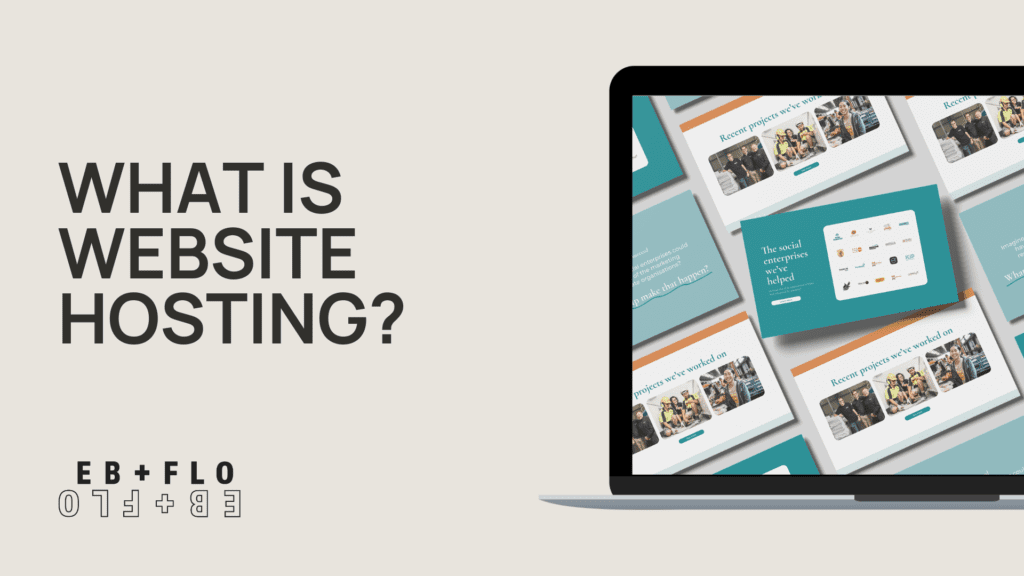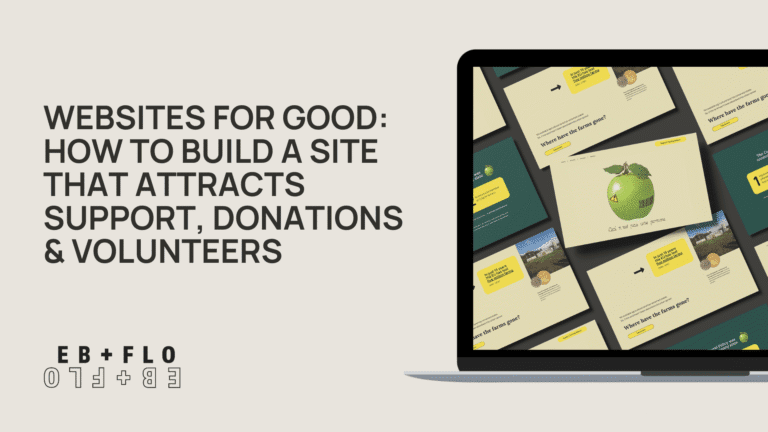Hosting, domains, SSL? If you’re not super technical, the backend of websites can be a little confusing.
While you’ll probably end up hiring somebody to manage this side of your website for you, having an understanding of what it is and how it works is a good idea so you know what you’re paying for.
So if you’re looking for a super quick, easy to understand guide on what’s what, we’ve got you covered.
What’s Website hosting?
Website hosting refers to the service of storing and making your website accessible on the internet. When you create a website, it needs to be stored on a server connected to the internet.
Website hosting is like renting space on the internet for your website. When you create a website, it consists of all sorts of files like images, videos, and code. These files need to be stored somewhere so that people can access your website online.
Think of it like renting an apartment. You pay a monthly fee for the space and services provided by the hosting company. They make sure your website is always up and running smoothly. Just like you might pay extra for a bigger apartment or additional amenities, the cost of hosting can vary depending on factors like the size of your website, the amount of traffic it gets, and any special features you might need. That’s where hosting companies come in.
While there are free hosting options available, they often come with limitations. Paid hosting services give you more freedom and better performance. Plus, you get access to things like technical support, domain registration, and other handy features that can make managing your website easier.
How about SSL?
Really quickly, your SSL is the ‘s’ in ‘https’ and tells users your website is secure.
SSL stands for Secure Sockets Layer. It’s a security technology that establishes an encrypted link between a web server and a user’s web browser. The SSL certificate ensures that the data transmitted between the server and browser remains private and secure.
When you visit a website with SSL, you’ll notice a padlock icon in the browser’s address bar, indicating a secure connection. The website’s URL will also begin with “https://” instead of just “http://”. The “s” in “https” stands for secure.
By using SSL, website owners can instill confidence in their visitors, as it demonstrates a commitment to security and privacy. It is particularly crucial for websites that handle sensitive information, such as e-commerce stores, online banking, or websites that collect user data through forms.
Ok, I want both. How do I set it up and get my website live?
We love the eagerness. There are plenty of hosting providers out there, do your research and find one that works for your site and needs.
If we’re designing and building your website, we’ll help set this up for you if you don’t already have it, or migrate it from your existing provider if you already have a website.
Chat to us here about this if you’re not sure!








